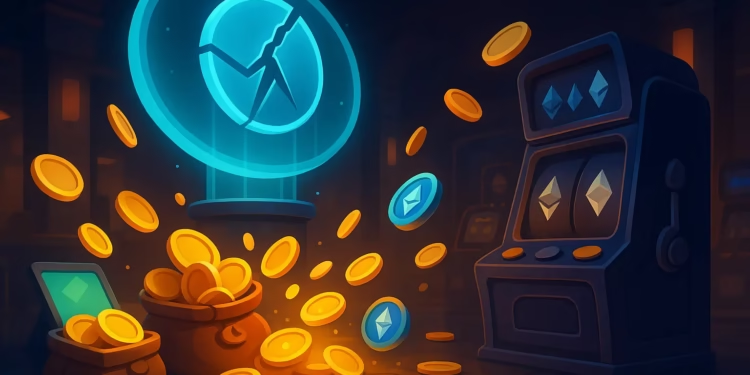ZK Casino has begun issuing its first refunds to victims of a $33 million scam that locked investor funds for over a year, with approximately 35% of affected addresses receiving partial repayments, according to an announcement from the platform’s anonymous founder on November 10.
The refunds, distributed via zkSync Lite and zkSync Era, mark the first significant restitution since the platform collapsed in April 2024 after converting user deposits into illiquid tokens without permission.
Larger withdrawals will require Know Your Customer (KYC) verification due to compliance obligations, the founder said which is a move that has drawn mixed reactions among those awaiting the next phase of the Zk casino refund distribution.
“This process has taken too long, but it’s still better than nothing. Many of us thought we’d never see a single ETH again,” an affected investor told CoinMarketCap Community.
The collapse that triggered the refund drive
ZK Casino launched in April 2024, promoting itself as a decentralized platform where users could bridge ETH into its layer-2 chain, earn yield, and withdraw their deposits at any time. Instead of honoring withdrawals, however, the project converted user deposits into ZKAS tokens locking funds while staking the ETH on Lido.
The result was catastrophic: over 10,000 investors were affected, and total losses reached roughly $33 million. The scandal drew heavy criticism from the crypto community, including from Vitalik Buterin, who publicly questioned ZK Casino’s claim of using zero-knowledge technology at all.
Investigators later linked members of the ZK Casino team to prior scams. Dutch authorities made several arrests during the initial fallout, though only a fraction of the lost funds was recovered.
The current Zk casino refund program is thus being viewed as a partial attempt at restitution though without independent oversight, many remain skeptical.
“What’s happening with ZK Casino highlights the critical need for transparent governance in decentralized projects,” — Clara Rios, blockchain compliance analyst at Chainalysis, said in an email statement.
Partial repayments bring hope but not closure
While the recent update suggests progress, only about one-third of affected wallets have received repayments so far. The project’s founder said that another 40% could be processed “within days,” potentially covering up to 75% of total claims.
The remaining portion of the Zk casino refund pool may depend on factors such as available liquidity, ongoing legal actions, and how unclaimed on-chain assets are liquidated. Community moderators have noted that several internal disputes over asset tracing remain unresolved.
According to a Dune Analytics dashboard tracking the refund wallets, most reimbursements have occurred in small batches ranging from 0.2 to 5 ETH. Several large addresses tied to institutional participants or syndicate pools remain pending.
Despite these efforts, the absence of third-party audits and transparency continues to erode confidence. Many victims have taken to Reddit and Discord to express frustration about the lack of clear timelines and official validation.
What’s next for affected users
Experts warn that the Zk casino refund operation may serve as a case study for future crypto restitution models particularly as regulators scrutinize unregistered investment platforms. The European Securities and Markets Authority (ESMA) has already flagged “pseudo-decentralized” projects operating without proper investor safeguards.
Even if the Zk casino refund process completes the next batch successfully, final recoveries may stretch into 2026, especially if frozen assets abroad remain tied up in legal proceedings.
For now, the partial refund rollout provides cautious optimism but no closure. Until all users are repaid and external oversight is introduced, the Zk casino refund will remain a cautionary tale of how misplaced trust in “decentralized” promises can lead to centralized losses.











